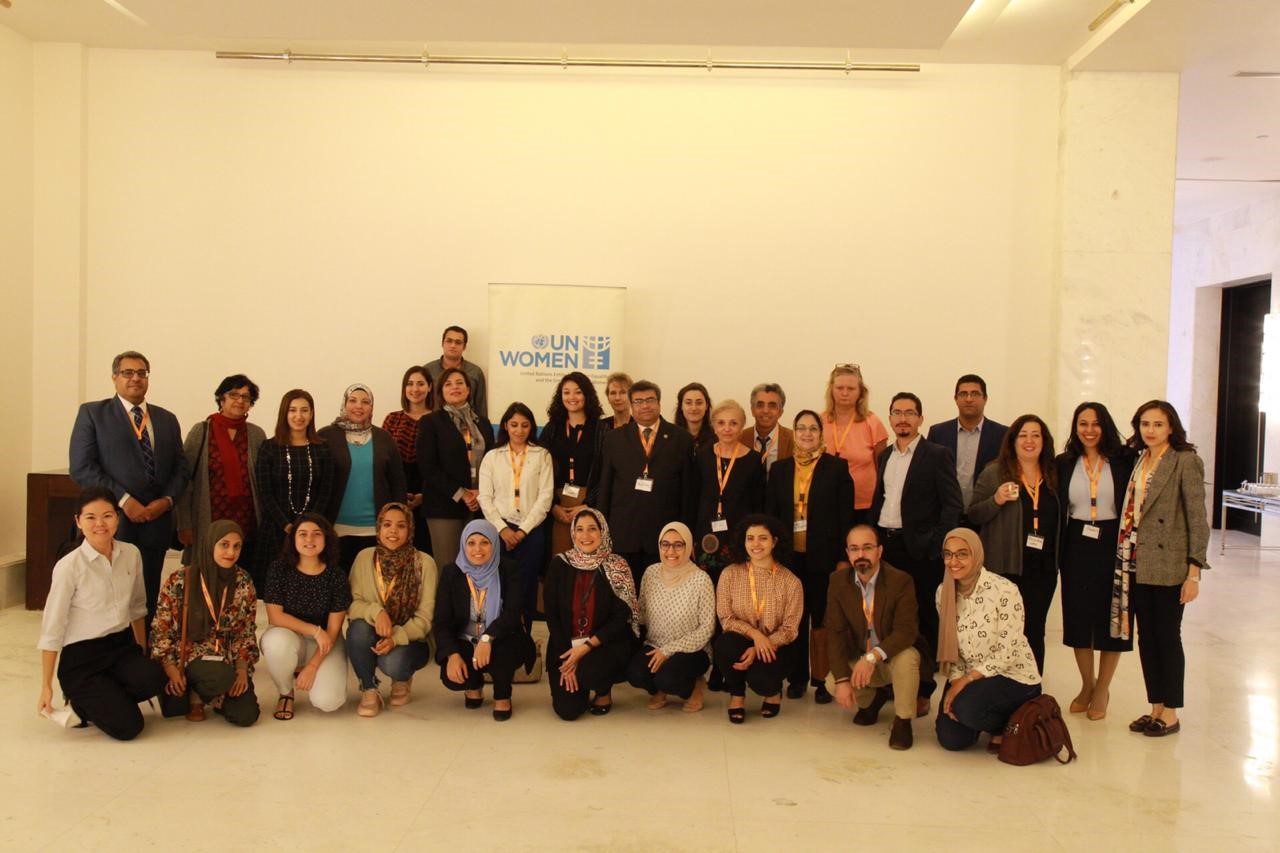North Africa Dialogue on Child Marriage and Female Genital Mutilation/Cutting
Date:

Currently, more than 200 million girls and women worldwide have experienced Female Genital Mutilation/Cutting (FGM/C) and more than 650 million women were married as children. These harmful practices are rooted in unequal gender norms and practices and are grave violations of fundamental human rights.
In the MENA region, one in five girls is married before the age of 18, while two out of three women affected by FGM/C live in just four countries in Africa: Egypt, Ethiopia, Nigeria and Sudan, which also have some of the highest child marriage rates in the world. In these countries, FGM/C is sometimes seen as a precursor or prerequisite for a girl to marry.
In November 2018, UN Women Regional Office for the Arab States convened a consultation meeting on child marriage and FGM/C with religious institutions, civil society, academia, youth representatives and UN agencies from Egypt, Libya, Morocco and Tunisia.
At the meeting, Blerta Aliko, UN Women Representative in Egypt, highlighted that any strategy that addresses these harmful practices must promote women’s empowerment and aim to change women’s status in the family and in society. She underlined that such strategies should be implemented within the context of the 2030 Agenda on Sustainable Development and through a human rights-based approach.
“There is a correlation between women’s empowerment and the reduction of harmful traditional practices. There should be a comprehensive strategy that supports the empowerment of girls.” said Ayman Sadek, Deputy Country Director of Plan International Egypt.
Participants shared good practices and lessons learned on the most effective ways to address these harmful practices and prepared a list of recommendations to be submitted to the African Union High-Level Dialogue with Traditional Leaders and Cultural Institutions on the Elimination of Child Marriage, FGM/C and Other Harmful Practices in Africa to take place in early 2019.
The meeting discussed the gap between legal criminalization of these practices and the persistence of attitudes and practices at the community level. Participants emphasized the importance of using a community-based approach; and the need to raise awareness and engage men and women to prevent and eliminate child marriage and FGM/C, while advocating in parallel for governments to implement existing laws and provide services to survivors.
Young people attending the meeting, and who, through their work, have been reaching out to groups at risk of being subjected to, and perpetuating, these practices, highlighted the media, theatre plays, sports and education systems as the most efficient channels to raise awareness.
Stakeholders agreed that religious leaders and faith-based institutions are key players to combat child marriage and FGM/C, as religious texts do not endorse these practices and alternative messages and interpretations need to be disseminated. For example, fatwas[1] against violence (such as the 2017 Dar El Iftaa Fatwa against FGM/C) were proven to be an effective way of combating harmful practices.
“Dar Al-Ifta[2] criminalizes child marriage. Child marriage contradicts the rulings of Shari’ah according to Dr. Shawki Allam, the Grand Mufti of Egypt”, said Heba Salah, researcher at Dar Al-Ifta in Egypt.
Reverent Refaat Fikry echoed the words of Heba Salah and since FGM/C and child marriage are not only performed among Muslim communities but also non-Muslim, he added that “Christianity rejects FGM and child marriage. We need new and enlightened ways of thinking that respect human dignity”.
Jaha Dukureh, Regional UN Women Ambassador working to end FGM and child marriage, called on the participants to continue taking action against these practices. “We need to start working on homegrown solutions: working with religious leaders, working with young people and very importantly, working with survivors. We also need to include the media in everything we do” said Ms. Dukureh.
-----------------------------------------------------------------------------------
[1] A ruling on a point of Islamic law given by a recognized authority
[2] Egypt Dar Al-Ifta is among the pillars of the religious foundations in Egypt which include Al-Azhar Al-Sharif, Al-Azhar University, Ministry of Religious Endowments, and Dar Al-Ifta of Egypt. It plays a significant role in giving rulings to the masses and consultation for the judiciary in Egypt.